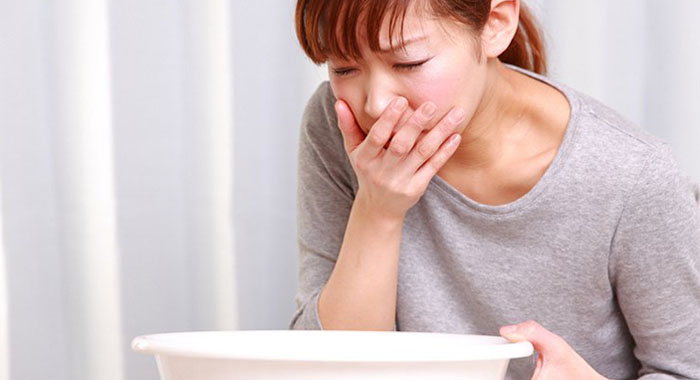
A majority of people would have encountered food poisoning. And those people will know how unpleasant it can be, even if you are a healthy and fit person. Food poisoning can sometimes produce severe illness and perhaps even death.
Most of the people believe that food poisoning mainly comes from the cafes, restaurants and fast food outlets. However, as per the FSA, you’re just as likely to get sick from food which is made at home.
Dr Robert Tauxe, MD, of the Centers for Disease Control says that Salmonella, which is a foodborne bacteria, effects in more hospitalisations and deaths than any of the other bacteria in the food. You tend to get this type of bacteria when you consume undercooked food or perhaps wrongly prepped food. In addition to that, when you have unclean food also you get the bacteria. The symptoms will include cramps, diarrhoea and fever. It may last for atleast four to seven days.
_

_
To avoid salmonella when eating out: Consume only fully cooked meat and poultry. Do not eat soft bacon, rare steak or even pink chicken. In addition to that, you should also shun eggs with very firm yolks and whites. Make sure that you send the food back if it is not cooked properly. Moreover, you need to avoid uncooked foods that may contain raw eggs, such as béarnaise and hollandaise sauce, meringue, mousse and “homemade” Caesar dressing and even ice cream. As a matter of fact, to be even more careful (particularly at fast-food joints), you could skip all the raw foods, which includes even the veggies. In the previous few years, tahini, cucumbers, raw nut butter and bean sprouts have all produced outbreaks.
_

_
E Coli, on the other hand, is produced by specific intestinal bacteria and can be contracted by touching or eating anything contaminated with faeces, either animal or human. It can drive to bloody diarrhoea and sometimes even kidney failure.
To avoid it when out: Make sure that the food is completely cooked. You need to be more careful with ground beef. Moreover, wash your hands after using the toilet. And also, be wary of raw foods.
Wash the worktops before and after making the food, especially after they’ve been touched by any sort of raw meat, such as poultry, fish, raw eggs. It also includes vegetables too. You don’t have to use antibacterial sprays. Hot and soapy water will be more than enough.
_

_
Wash the dishcloths and also the tea towels periodically and make them dry before you start to use them again. Damp and dirty cloths are the ideal place for germs to grow.
Make sure that you use separate chopping boards for ready-to-eat foods and raw food. Raw foods can include harmful bacteria that spreads very quickly to anything they touch, which also includes other foods, chopping boards, worktops and knives.
It’s imperative to put raw meat away from ready-to-eat foods, like salad, bread and fruits. This is mainly because these foods will not be cooked before you consume them, so any bacteria that goes on to the foods won’t be killed.
_

_
If you have prepared food that you will not be eating straight away, cool it as fast as possible (within 90 minutes) and keep it in the fridge or freezer. Make sure that you use all the leftovers from the refrigerator within two days.
Another important thing that you should keep in mind is that you should not eat food that’s past its ‘use by’ date even if it appears and smells good. ‘Use by’ dates are mainly based on scientific tests that reveal how rapidly harmful bugs can form in the packaged food.